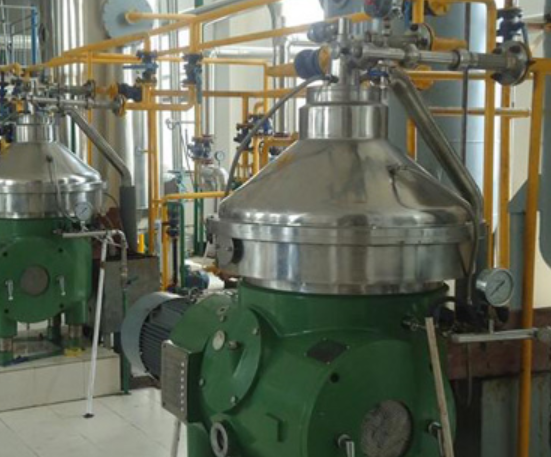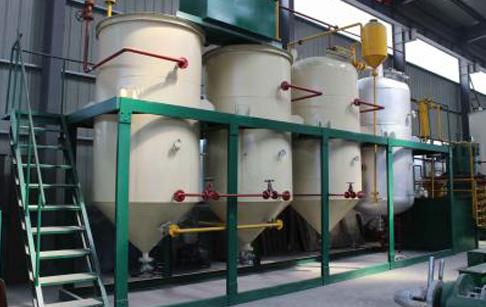Oil refining equipment is a kind of oil refining equipment that can produce high-quality, high-quality edible oil. Anyone who has been in contact with the oil processing industry should know that there is a whole set of oil refining processes for oil from raw material to finished oil. These oil refining processes usually include degumming, deacidification, decolorization and deodorization. The purpose and operation requirements of each oil refining process are different. So, how should the oil refining equipment encounter problems in the working process? The following is an introduction to common problems and treatment methods of oil refining equipment.

Common problems and treatment methods of oil refining equipment:
1. Oil refining and degumming section
Degumming is considered to be one of the important links in the oil refining process. A reasonable degumming operation will help ensure the quality of the refined oil and reduce losses. Because the presence of colloid in the oil will reduce the quality of the finished oil, the amount of white clay will increase when the oil is decolorized. If there is still colloid before the oil is deodorized, the oil will have a serious peculiar smell and affect the stability of the finished oil.

2. Oil refining and deacidification section
Deacidification is also the main process of oil refining. Chemical or physical methods can be used to remove free fatty acids in oils. Alkali refining (neutralization) is usually used in edible oil plants to remove such impurities in fats, thereby laying a good foundation for fat decolorization, deodorization, hydrogenation and deep processing of fats. Alkaline refining can speed up the quality of fat, increase its stability, and prolong the storage period. However, in addition to neutralizing the lye with fatty acids, it also reacts with a small amount of triglycerides to produce glycerin and soap, which causes an increase in refining consumption. Therefore, it is necessary to select suitable oil refining process conditions to reduce refining consumption.

3. Oil refining and decolorization section
Most oil refining processes use adsorption decolorization, that is, the pigment in the oil is adsorbed by the decolorizing agent (bleached earth or activated carbon) under the required process conditions. The main process conditions are temperature, time, working pressure and the amount of decolorizing agent. . When selecting a decolorizing agent, factors such as price, activated carbon and oil-carrying rate must be considered comprehensively.
4. Oil refining and deodorization section
The mechanism of oil refining equipment deodorization is based on the fact that the vapor pressure of odor components is much greater than that of triglycerides under the same conditions, so that the two are separated by distillation. Due to the poor volatility and low content of the odorous substances in the oil, to achieve a good deodorization effect, conditions such as high temperature and high vacuum are required. According to the distillation principle during the operation of oil refining equipment. Increasing the temperature, speeding up the vacuum, increasing the amount of water vapor and prolonging the deodorization time are all conducive to the progress of deodorization, which is a reasonable means to accelerate the deodorization effect of oil refining equipment. However, in the actual operation of oil refining equipment, the coordination between these conditions and the overall cost should be considered in detail.
Copyright © Henan Zhongxing Grain And Oil Machinery Co.,Ltd. All Rights Reserved. Powered by MetInfo